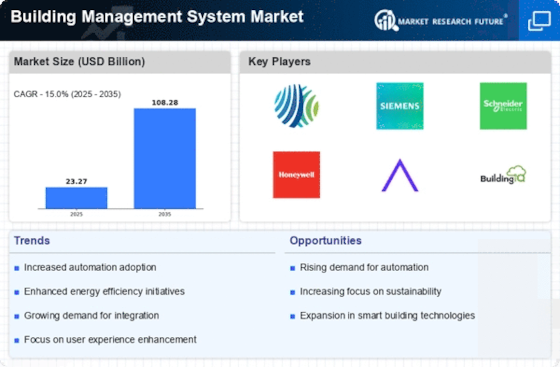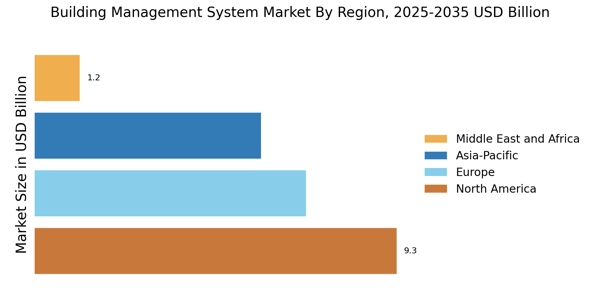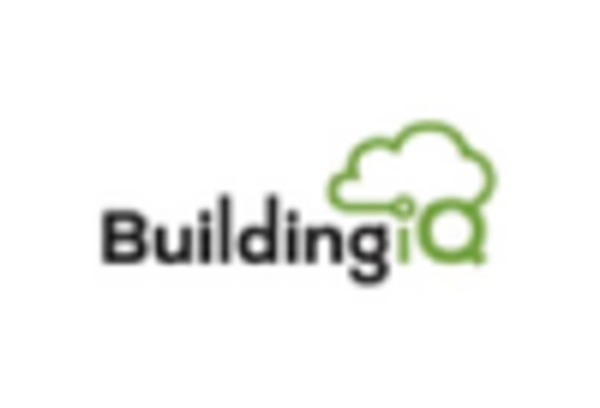Building Management System Market Summary
As per MRFR analysis, the Building Management System Market was estimated at 23.27 USD Billion in 2024. The Building Management System industry is projected to grow from 26.76 USD Billion in 2025 to 108.28 USD Billion by 2035, exhibiting a compound annual growth rate (CAGR) of 15.0 during the forecast period 2025 - 2035.
Key Market Trends & Highlights
The Building Management System Market is poised for substantial growth driven by technological advancements and increasing demand for smart solutions.
- The integration of IoT technologies is transforming building management systems, enhancing operational efficiency and user experience.
- Energy management remains the largest segment, reflecting a strong focus on energy efficiency and sustainability in building operations.
- In the Asia-Pacific region, the market is experiencing rapid growth, driven by urbanization and increasing investments in smart infrastructure.
- Rising demand for smart buildings and regulatory compliance initiatives are key drivers propelling the market forward.
Market Size & Forecast
| 2024 Market Size | 23.27 (USD Billion) |
| 2035 Market Size | 108.28 (USD Billion) |
| CAGR (2025 - 2035) | 15.0% |
Major Players
Johnson Controls (US), Siemens (DE), Schneider Electric (FR), Honeywell (US), Trane Technologies (IE), BuildingIQ (AU), KMC Controls (US), Lennox International (US), Cylon Controls (IE)

















Leave a Comment